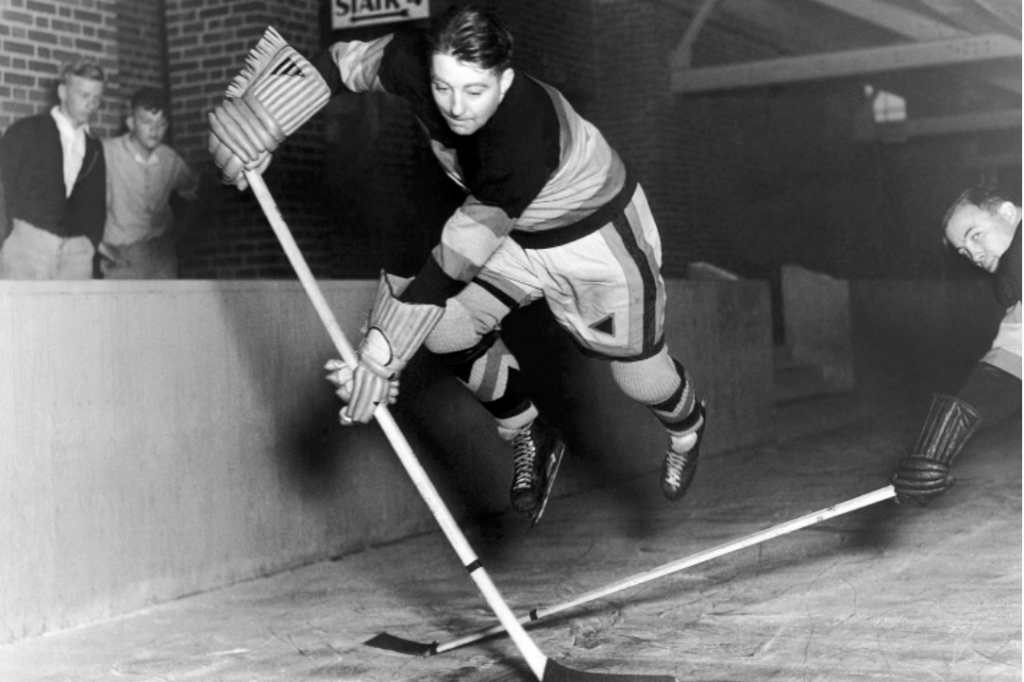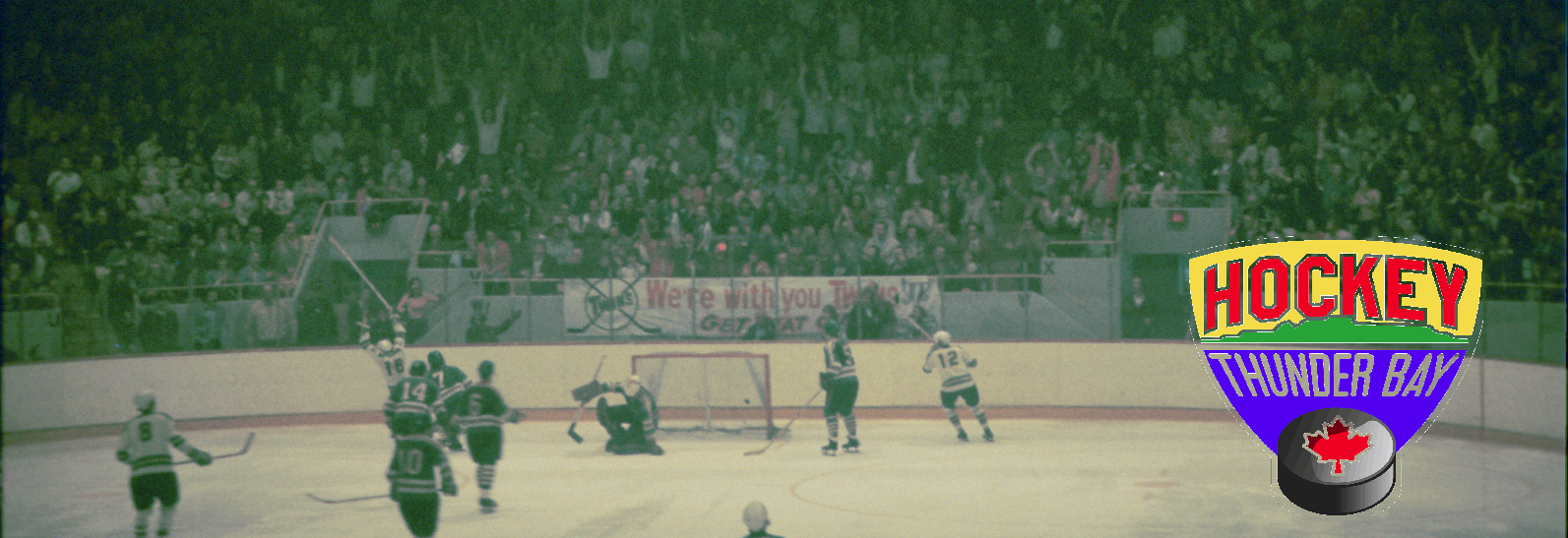 MANY players from the Lakehead that have laced them up over the years excelled on the ice. One such individual in that elite contingent of greats was Tommy Cook.
MANY players from the Lakehead that have laced them up over the years excelled on the ice. One such individual in that elite contingent of greats was Tommy Cook.
Diminutive in stature at only five-foot-seven, yet highly skilled, Cook began to draw attention for his hockey exploits a century ago, early in his career as a spry 15-year-old forward with his hometown Fort William Dominions junior side in the winter of 1922.
Credited with pacing the squad offensively over two seasons, averaging nearly two points-per-game, he later went on to compete at the University of Manitoba where his efforts aided in a Turnbull Trophy title as that province’s Jr. title holders in 1925.
Returning home and still just 18, Cook signed with the Fort William Thundering Herd seniors for a three-year-run locally.
Their top point-getter in each of his final two seasons was highlighted with a league championship in 1927.
With a one-two punch of Cook and another future exceptional NHL standout Jimmy Ward, the Forts had finally knocked off the two-time defending Allan Cup-champion Port Arthur seniors.
From there, the Herd went on a run that saw them advance all the way to the national final in Vancouver, B.C.
Collecting two-game total-goal triumphs over competitors from Winnipeg, Weyburn, Sask., and Trail, B.C., they earned a shot at a Canadian crown.
However, they suffered a heart-breaking 2-1 setback to the Toronto Varsity Grads in the conclusion of a best-of-three affair that needed a fourth contest to determine a winner at the event.
Drawing interest from the professional ranks, Cook was signed by the Tulsa Oilers of the six-team American Hockey Association where he shared the AHA lead in tallies and points and went on to hoist another championship trophy.
His stellar play would eventually earn him a National Hockey League contract with the Chicago Blackhawks.
In his first four years in the Windy City, Cook finished either first or second in team scoring on each occasion.
His fifth season saw him miss 11 games due to injury, which hampered his production somewhat, but he still finished up sixth in points for the Blackhawks.
With Chicago ending up with the third-best record in the nine-team NHL, Cook was back for the 1934 playoffs.
Their postseason began with an opening round triumph over the Montreal Canadiens that featured a victory and a tie.
Taking on the Montreal Maroons in the semifinals, the Hawks picked up a two-game sweep with Cook collecting the game-winner in the finale, with an unassisted effort in the third period.
Moving on to the Stanley Cup Final, their opponent would be the Detroit Red Wings, who were guided by legendary Lakehead native Jack Adams, as the club’s head coach and general manager.
After Chicago took Game 1 in double overtime, each side won by three goals in the next two meetings before Mush March scored midway through a second OT to give the Blackhawks a 1-0 triumph in the finale to take the best-of-five get together 3-1 and win the Stanley Cup.
The next year, of his 12 goals, five were game-winners, which tied him for the second-highest total in the league with Ward, who had equally as many with the Maroons.
In all, Cook played eight seasons in Chicago before rounding out his time in the NHL with the Maroons in 1937-38.
Inducted into the Northwestern Ontario Sports Hall of Fame in 1990, he played 349 games in the NHL where he tallied 76 times, 18 of which were deciding markers, and supplied 98 assists for 174 points.
In producing offensively, where he led his teams in scoring multiple times, while also winning championships at every level he competed in, Tommy Cook stands out as a true local hockey great.
Tommy Cook excelled in the 1920s & 30s

